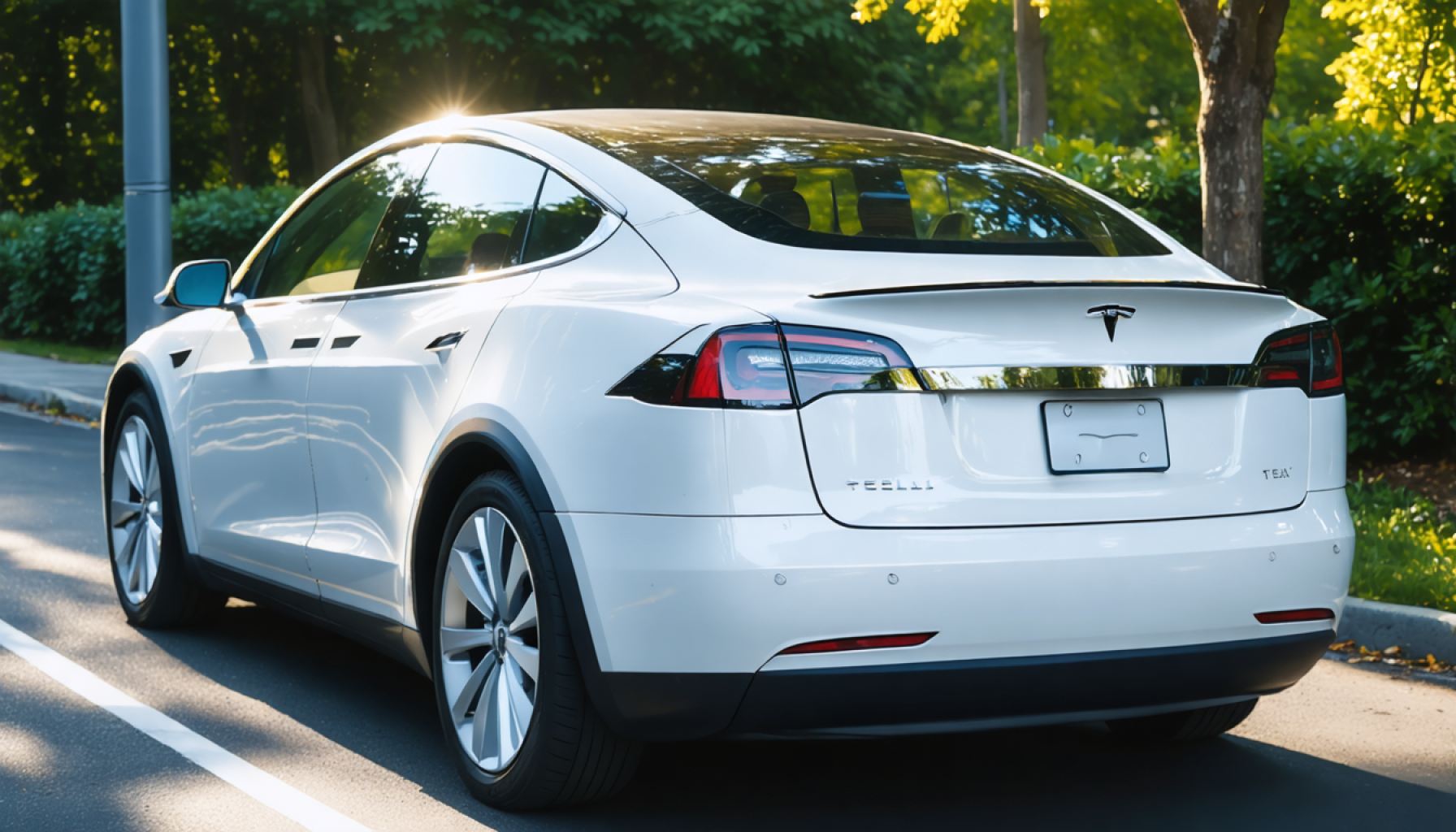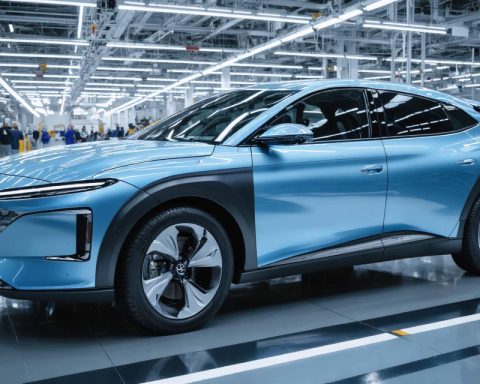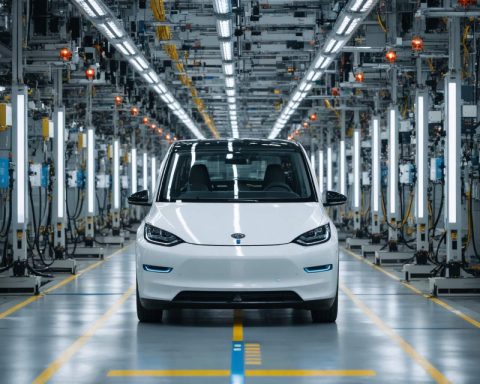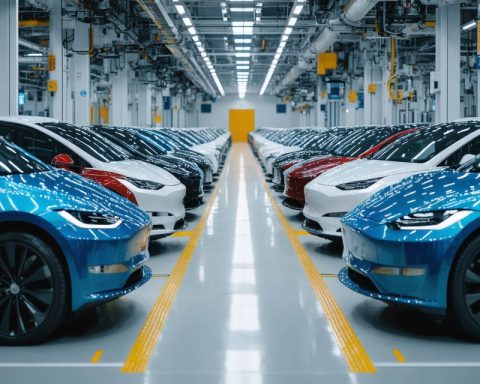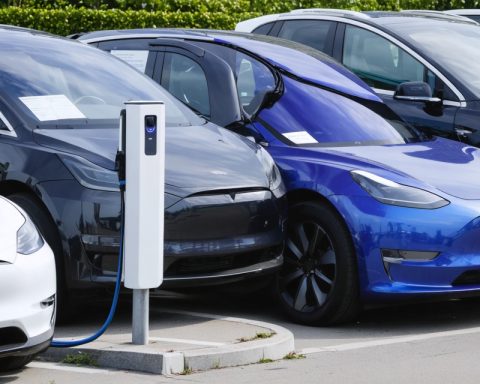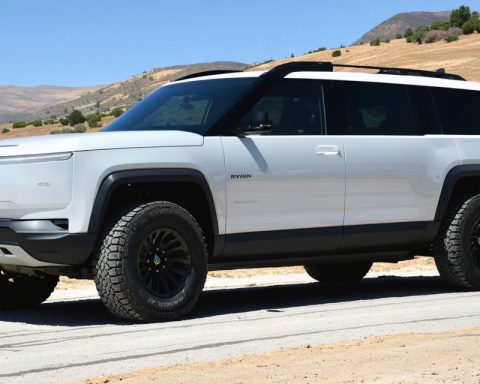- Electric vehicle (EV) owners will pay £195 annually in vehicle excise duty (VED) starting April 1st.
- From April 1, 2025, new EVs over £40,000 will incur an “expensive car supplement” (ECS) of £425 annually for five years.
- This new tax approach is seen as targeting higher-priced models, especially from the popular Tesla brand.
- Efforts to reduce EV prices below the £40,000 threshold include price adjustments by manufacturers like Hyundai and Kia.
- There is concern that these changes could slow the adoption of greener vehicles, as EV buyers have higher odds of incurring luxury taxes compared to petrol or diesel cars.
- Introduced under Jeremy Hunt, the policy aims for tax fairness, but faces criticism for potentially hindering sustainable transportation progress.
As the sun sets on April 1st, a new chapter in the story of electric vehicles (EVs) will begin—one where owners face costs akin to their gas-guzzling counterparts. The age of tax exemption for EVs will meet its end as vehicle excise duty (VED) comes into play, a move pitched as fairness by government powers but viewed through a prism of apprehension by many.
Starting from April Fool’s Day next year, EV owners will find their wallets lighter as they pay £195 annually in VED. But the plot thickens for new car buyers on April 1, 2025. For any sparkling new EV with a sticker price eclipsing £40,000, an “expensive car supplement” (ECS) awaits. This surcharge, a hefty £425 per annum, will apply for five years, marking an additional £2,125 drain on the purse over that period.
Described fervently as a “Tesla tax” by indignant owners and the auto industry, this plot twist appears particularly targeted. As numerous models from the popular U.S. manufacturer overtly cross this ECS threshold, it seems a precision strike on an aspirational brand. Yet, not all Tesla lovers need despair—exception remains in the shape of the Model 3 Rear Wheel Drive, slyly priced just under the £40,000 mark.
But as the government’s dual motivations of fairness and revenue collection mingle, there’s apprehension this could slow the ascent to greener motoring. Market analysis underscores a daunting reality: buyers opting for new EVs face threefold odds of confronting this luxury car tax compared to those lingering in the petrol or diesel world. Critics argue that such financial roadblocks might stall the momentum toward a sustainable future, particularly with consumer interest already hesitant.
Introduced under the tenure of Jeremy Hunt in November 2022, this revised approach to motoring taxes aims to level playing fields. Its legacy persists as it endures a fiery political transition, retaining its trajectory under new government stewardship toward its 2025 finale.
Manufacturers, not blind to the incoming economic storm, have started trimming the recommended retail prices (RRP) of their EVs to nimbly dip beneath the ECS threshold. Hyundai Inster, Renault’s redemptive return with the 5 E-Tech, and Kia’s nimble EV3—all perform this dance beneath the £40,000 line, offering value without the incoming financial sting. These savvy models promise to whisk forward-thinking drivers over 200 miles on a full charge without breaching the tax cordon.
This looming fiscal cloud changes the landscape for electric vehicles, prompting a strategic rethink for sellers and buyers alike. The onus rides on consumers to chart their path wisely, deftly weaving through the forthcoming tax intricacies while keeping an eye on their sustainable, tech-forward dreams. Ultimately, this is a clarion call to proceed with prudence—lest the allure of the electric might find itself dimmed by the burden of tax.
Navigating the New Costs of Electric Vehicle Ownership: What You Need to Know
Introduction
The electric vehicle (EV) market is rapidly evolving as governments rethink incentives and taxation policies that have previously made these cars more financially appealing. Starting April 1st, UK EV owners will face significant changes in vehicle excise duty (VED) and an “expensive car supplement” (ECS) for pricier models. These new taxes, promoted as measures for fairness, could alter the landscape of electric vehicle ownership and impact market trends.
Understanding the New Taxes
Vehicle Excise Duty (VED):
– Effective April 1st, 2024, EV owners will begin paying £195 annually.
– This fee aligns EVs with traditional petrol and diesel vehicles in terms of taxation.
Expensive Car Supplement (ECS):
– From April 2025, EVs priced over £40,000 will incur an extra £425 per year for five years.
– This adds up to £2,125 over the surcharge period.
– Vehicles like the Tesla Model 3 Rear Wheel Drive strategically remain under the threshold, avoiding the additional tax.
Market Reactions and Adjustments
Manufacturers’ Strategies:
– Brands like Hyundai, Renault, and Kia are adjusting their EV pricing to stay under the £40,000 ECS threshold.
– Models such as Hyundai Inster, Renault 5 E-Tech, and Kia EV3 are examples of cars promising over 200 miles on a full charge without incurring the ECS.
Impact on EV Market Growth:
– There is concern these new costs could slow down the shift to electric vehicles, which may impact environmental goals.
– As EV adoption is critical for reducing carbon footprints, the impact of these taxes could be significant.
How to Navigate the Changing EV Landscape
Real-World Use Cases and Strategies:
1. Cost-Benefit Analysis:
– Conduct detailed comparisons between the annual costs of EV ownership with and without VED and ECS to determine financial viability.
2. Consider Resale Value:
– Research how these taxes might impact the resale value of EVs, particularly those affected by the ECS surcharge.
3. Lease vs. Purchase:
– Explore leasing options, which might mitigate the impact of ECS costs, especially over the initial five-year period.
4. Research Incentives:
– Stay informed on regional incentives or rebates that might offset these additional taxes.
Future Trends and Predictions
– The push for sustainable driving options persists, suggesting that this taxation shift might inspire further innovation in EV affordability and battery technology.
– With the global emphasis on reducing carbon emissions, additional policy changes or incentives could emerge to support EV adoption.
Conclusion and Recommendations
For prospective EV buyers in the UK, navigating these new tax policies requires careful planning and consideration. Evaluate the total cost of ownership, explore flexible financial arrangements like leasing, and stay updated on potential changes in tax policies or incentives. Smart purchasing decisions, combined with the strategic use of new technologies, can help consumers both manage costs and support environmental goals.
For more on sustainable vehicle ownership, visit the UK Government website.
